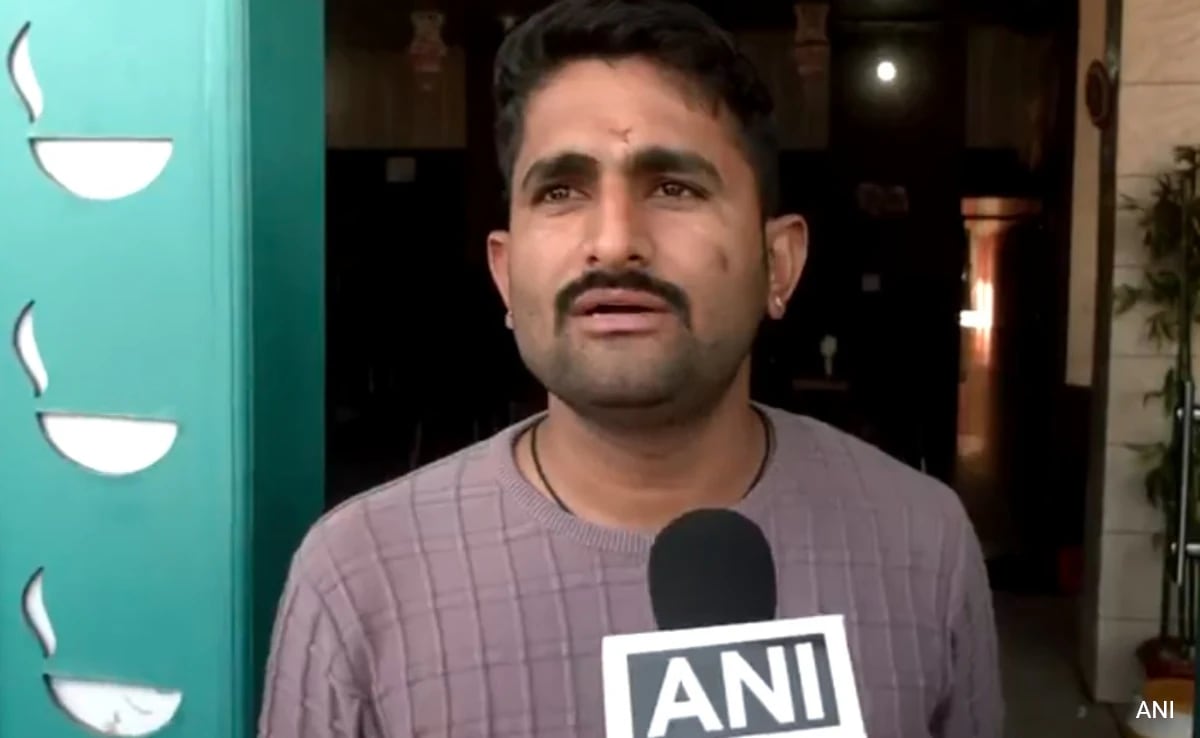Cross-Border Wedding in Jeopardy as Visa Hurdles and Terror Attacks Halt Celebrations
In a heart-wrenching turn of events, Shaitan Singh, a groom from Rajasthan, finds himself unable to cross into Pakistan for his long-awaited wedding due to the sudden closure of the Attari-Wagah border. The closure, ordered by the Indian government, is a direct response to the tragic terror attack in Pahalgam that claimed the lives of 26 individuals, primarily tourists. The incident on April 22 forced authorities to implement immediate border shutdowns, leaving Singh and his family in a state of despair just days before the scheduled marriage on April 30.
This emotional rollercoaster began four years ago when Singh got engaged to Kesar Kanwar, a bride from Pakistan’s Sindh province. After years of navigating the visa process, Singh, alongside his father and brother, finally received their travel permissions on February 18. Full of excitement and ready in traditional wedding attire, the family set off from Barmer district in Rajasthan on Tuesday, only to be met with an unexpected roadblock at the border.
“We’ve waited a long time for this day,” Singh lamented. The uncertainty around the border’s status has left both families disheartened, with Singh’s cousin, Surendra Singh, lamenting the fact that relatives from Pakistan had to return home without the joyous celebration they had anticipated. “Terror attacks cause a lot of damage. Relations get spoiled. Movement on the border stops,” he stated, capturing the frustration of many families caught in this geopolitical tussle.
While the family remains hopeful, Singh’s visa is valid until May 12. This detail provides a slim glimmer of hope that the wedding might still take place if the border situation improves in time. “Whatever the terrorists did was wrong. The wedding has been interrupted. What to do? It is a matter of borders,” Singh expressed, emphasizing the unfortunate reality that they are now navigating.
Traditional ties often dictate such unions among families from the Sodha Rajput community, with many opting for cross-border marriages to maintain cultural fabric and community bonds. Singh, who works in the finance sector, is representative of many individuals in this region who have familial ties across the border, making this disruption even more poignant.
The backdrop of this wedding debacle includes heightened tensions between India and Pakistan. Following the horrific Pahalgam attack, which targeted innocent civilians, **India downgraded its diplomatic relations with Pakistan**. A Cabinet Committee on Security meeting, chaired by Prime Minister Narendra Modi, resulted in a series of retaliatory measures, including the suspension of the Indus Water Treaty of 1960, the revocation of visa services for Pakistani nationals, and the closure of the Attari land-transit post.
The ongoing situation has drawn significant attention and sparked discussions on social media platforms and news segments alike. Experts and citizens alike are calling for better measures to handle cross-border relationships, particularly in the context of weddings and family reunions that embody hope and unity beyond political disputes.
As per the report by NDTV, the disruption is emblematic not just of personal sorrow but also the larger implications of cross-border tensions affecting lives on both sides of the border. The emotional toll on families awaiting such joyous occasions cannot be overstated.
In the wake of these recent events, many are left questioning how families can navigate such complex sociopolitical landscapes while still holding onto hope for reunification and joyous celebrations. The rich cultural practices that have historically bonded communities across borders remain at risk due to the hostile environment fueled by fear and violence.
The plight of Singh and his family serves as a potent reminder of how geopolitical situations can impact the most personal and cherished moments in life. For many, weddings symbolize not just love and union, but also hope and the bridging of divides. Singh’s story may resonate with many who have loved ones on the other side of the border, and his family hopes that the broader context does not overshadow their individual desires for happiness and unity.
As families await news about the reopening of the border, they cling to the hope that such celebrations will once again be permitted, fostering bonds that transcend borders. The heartbreak experienced by Singh and his family underscores the need for renewed dialogue and peace initiatives between nations to mitigate the impact of violence on innocent lives.
For more related content on cross-border marriages and the implications of political tensions, visit our articles on Cross-Border Marriages in South Asia and the Impact of Political Tensions on Personal Lives.
The world watches as Singh’s family hopes for a miracle, hoping that love can indeed conquer all, even in the face of adversity.
DISCLAIMER
We have taken every measure to ensure that the information in this article and on our social media platforms is accurate, verified, and obtained from reliable sources. For feedback or complaints, please contact us at info@hamslive.com.


